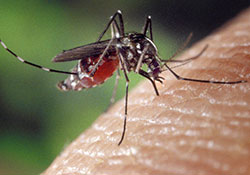Data and statistics

CDC/James Gathany
What is malaria?
Malaria is a parasitic disease caused by protozoa of the genus Plasmodium. Humans become infected with malaria through the bite of a female mosquito belonging to the genus Anopheles. Four Plasmodium spp. cause malaria in human beings, including P. falciparum, P. vivax, P. ovale and P. malariae. Cases caused by the most common of these species, P. falciparum, can be fatal if not treated properly.
Definitions of malaria cases
Case, imported: a case whose origin can be traced to a known malarious area outside the country in which the case was diagnosed.
Case, indigenous: a case whose origin from local transmission cannot be disproved. It includes delayed first attacks of P. vivax due to locally acquired parasites with a long incubation period.
Case, introduced: a case in which it can be proven that the infection is a first step (first generation) of local transmission subsequent to a proved imported case: that is, in which the mosquito was infected from an imported case.
Case, induced: a case whose origin can be traced to a blood transfusion or other form of parenteral inoculation, but not to normal transmission by a mosquito.
Case, relapsing: case shown by the history of the patient to be a probable relapse (if careful epidemiological investigation shows that the infection was contracted before interruption of transmission was claimed in the locality and if there are no epidemiologically related malaria cases in the neighbourhood).



